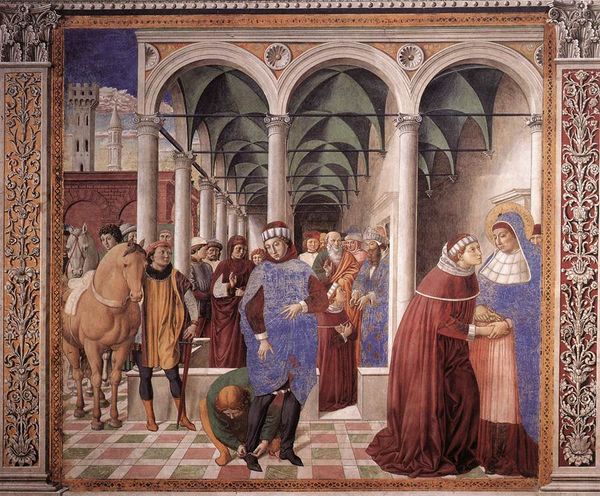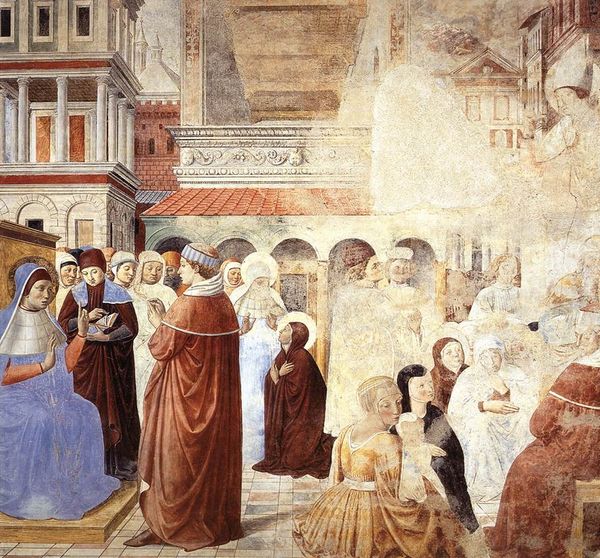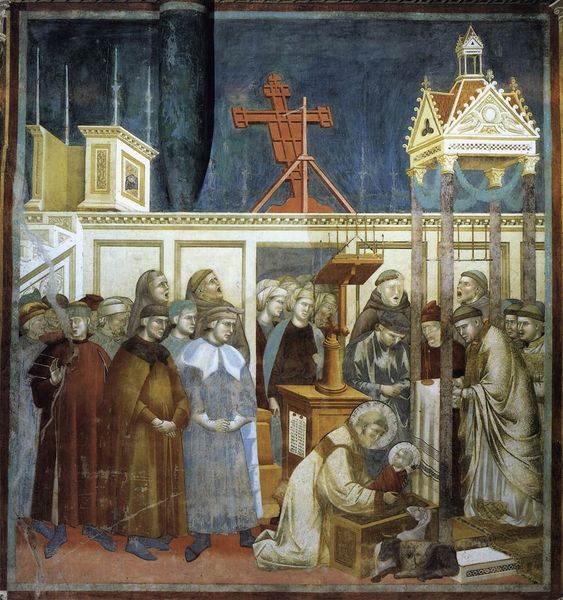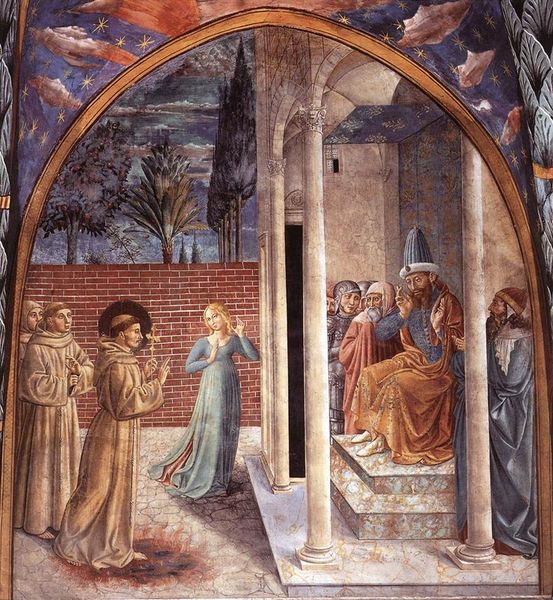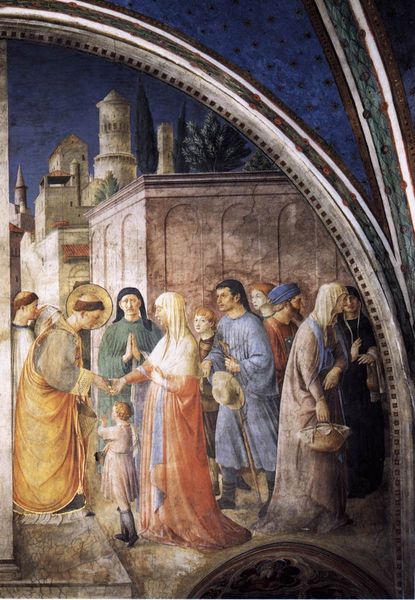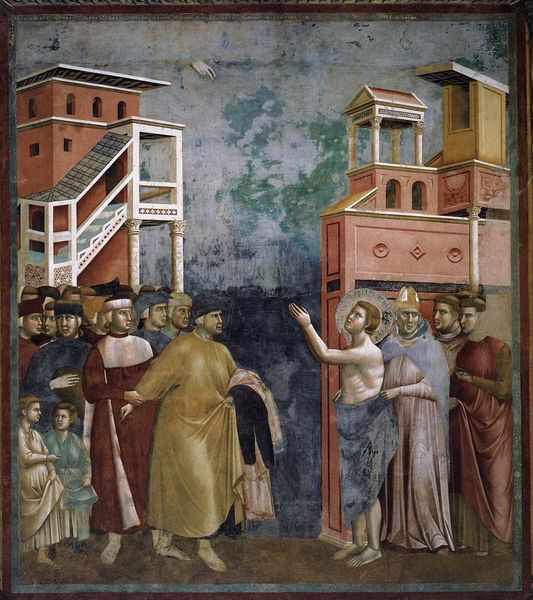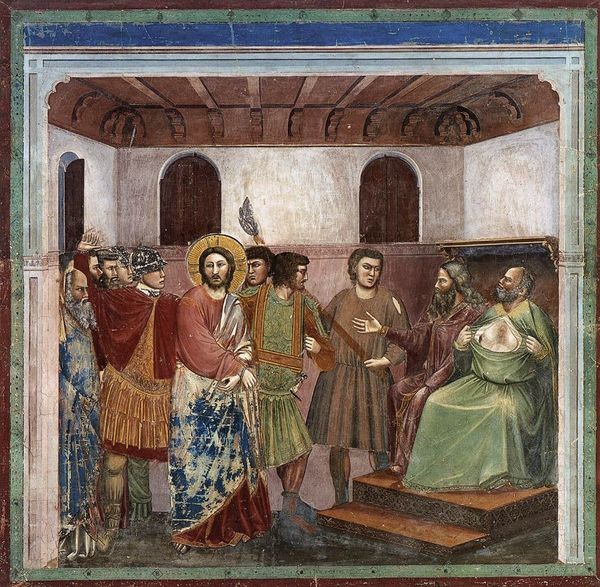
Renunciation of Worldly Goods and The Bishop of Assisi Dresses St. Francis 1452
0:00
0:00
fresco
#
narrative-art
#
landscape
#
holy-places
#
figuration
#
fresco
#
oil painting
#
christianity
#
painting painterly
#
history-painting
#
italian-renaissance
Dimensions: 220 x 260 cm
Copyright: Public domain
Curator: Ah, the scene practically glows! What strikes me first is the tender vulnerability of the central figure contrasted against the opulent setting. Editor: Yes, the contrast is key. We’re looking at “Renunciation of Worldly Goods and The Bishop of Assisi Dresses St. Francis” a fresco painted in 1452 by Benozzo Gozzoli. It really encapsulates a pivotal moment laden with socioeconomic implications. Francis's act is a public performance of defiance. Curator: Absolutely! It’s like he's shedding not just clothes, but expectations, status… Everything! Did you notice the onlookers? There's a mix of judgment, pity, and even admiration on their faces, a testament to the audacity of his act. Editor: Precisely, Gozzoli sets up a compelling stage to represent the clash between the material and the spiritual. This resonates powerfully when considering that such choices remain fraught with social complexities today. What does voluntary poverty mean in a world obsessed with hyper-accumulation and visibility? Curator: True! There's also the delicate application of the fresco medium; it imparts a luminosity, as though bathed in divine light. A detail I love is how the bishop, seemingly dignified, still holds a curious expression… Is it awe? Perhaps even slight discomfort? Editor: It's the gaze of someone complicit in the system that is being questioned. Consider the power structures that enable wealth accumulation. The artist seems to underscore this complicity, doesn't it? It is through renunciation that a true challenge to power can occur. Curator: Yes, you are absolutely right! This painting becomes a mirror, prompting us to contemplate our own values and what we are willing to shed for our truth, whatever it may be. A quiet radical statement. Editor: Ultimately, the work dares us to strip away our own worldy attachments, doesn't it? Food for thought.
Comments
No comments
Be the first to comment and join the conversation on the ultimate creative platform.
